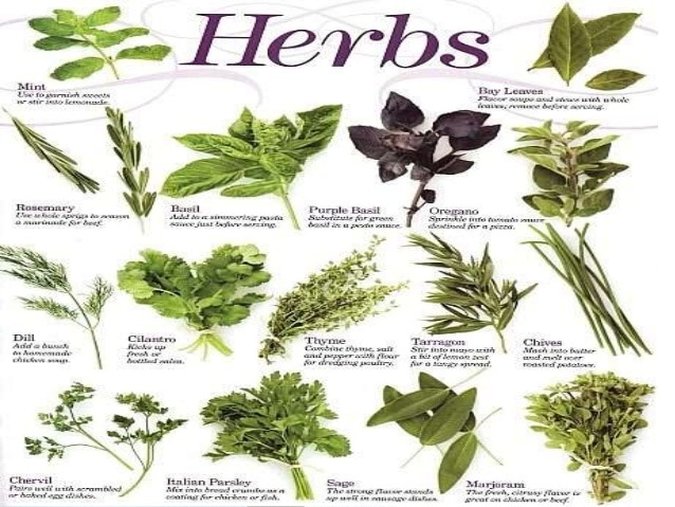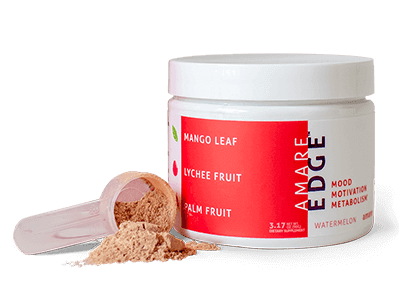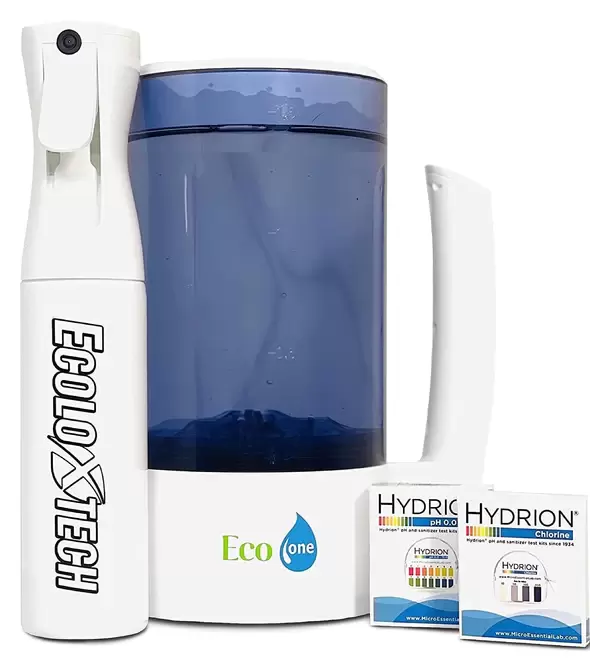|
Here are some descriptions of herbal actions in the body. Adaptogen: Substances which put the body into a state of non-specific heightened resistance in order to better resist stress and adapt to extraordinary challenges. Ashwagandha, Cordyceps, American Ginseng, Panax Ginseng, Siberian Ginseng, Gotu Kola, Maca, Reishi, Schizandra, Shiitake, Suma. Alterative:
An herb that will gradually restore the proper function of the body and increase health and vitality. Sometimes referred to as blood purifiers. Alfalfa, Black Cohosh, Blue Flag, Blue Violet, Boneset, Buckthorn, Burdock, Cleavers, Echinacea, Fringetree, Golden Seal, Gotu Kola, Kelp/Bladderwrack, Licorice, Oregon Grape, Pau d’ Arco, Pipsissewa, Poke Root, Prickly Ash, Red Clover, Sarsaparilla, Sheep Sorrel, Stillingia, Tayuya, Wahoo, Wild Indigo, Yarrow, Yellow Dock. Analgesic/Anodyne: Analgesics or Anodynes are herbs that reduce pain. Chamomile, Chaparral, Dong Quai, Hops, Passion Flower, Reishi, Valerian, Venus’ Flytrap. Anthelmintic: Herbs that work against parasitic worms which may be present in the digestive system. Black Walnut, Helonias, Quassia, Sheep Sorrel, Wormwood. Antibacterial: Herbs with properties that can inhibit bacterial growth. Blessed Thistle, Cloves, Echinacea, Kelp/Bladderwrack, Licorice, Lomatium, Osha, Pau d’ Arco, Reishi, St. John’s Wort, Turmeric, Usnea. Antibilious: Herbs that help the body to remove excess bile. Barberry, Dandelion, Fringetree, Golden Seal, Wild Yam, Wormwood. Anticatarrhal: Herbs that help the body reduce excess mucous and phlegm. Echinacea, Elderberry, Golden Seal, Marshmallow, Oregon Grape, Poke Root, Uva Ursi, Wild Indigo, Yarrow. Antiemetic: Herbs that reduce the feeling of nausea and can help to relieve or prevent vomiting. Atractylodes, Barberry, Cloves, Fennel, Oregon Grape. Anti-inflammatory: These herbs help the body to combat inflammations. Ashwagandha, Bilberry fruit. Blue Violet, Calendula, Cat’s Claw, Chamomile, Cleavers, Devil’s Claw, Dong Quai, Fo-Ti, Licorice, Lomatium, Reishi, St. John’s Wort, Turmeric, Wild Yam, Wormwood. Antilithic: Herbs that prevent the formation or help remove stones or gravel in the urinary system Sheep Sorrel, Uva Ursi. Antimicrobial: Herbs that can help the body destroy or resist pathogenic micro-organisms. Calendula, Cat’s Claw, Cloves, Echinacea, Licorice, Lovage, St. John’s Wort, Usnea, Uva Ursi, Wild Indigo, Wormwood. Antineoplastic: Having the specific action of inhibiting and combating tumor development. Blue Violet, Chaparral, Cleavers, Red Clover, Reishi, Sheep Sorrel, Shiitake, Venus’ Flytrap. Antioxidant: An antioxidant is a substance capable of eliminating hydroxyl free radicals. Bilberry fruit, Cat’s Claw, Chaparral, Ginger, Panax Ginseng, Ginkgo, Kelp/Bladderwrack, Schizandra. Antirheumatic: Herbs used to relieve or protect against rheumatism. Blue Cohosh, Cat’s Claw, Chaparral, Celery, Dandelion, Kelp/Bladderwrack, Poke Root, Sarsaparilla, Wild Yam. Antiseptic: Herbs that can prevent, resist and counteract putrification. Bilberry fruit, Black Walnut, Chamomile, Cloves, Echinacea, Hops, Red Clover, Sheep Sorrel, Uva Ursi, Wild Indigo, Yarrow. Antispasmodic: Antispasmodics can prevent or ease spasms and cramps in the body. Black Cohosh, Blue Cohosh, Boneset, Chamomile, Cramp bark, Culver’s root, Dong Quai, Fennel, Helonias, Licorice, Motherwort, Passion Flower, Red Clover, Skullcap, Stillingia, Valerian, Wild Yam. Aphrodisiac: Herbs used to stimulate sexual passion. Catuaba, Damiana, Maca, Muira Puama, Schizandra, Suma, Yohimbe. Aromatic: Herbs that have a strong and often pleasant odor and can stimulate the digestive juices. Angelica, Celery, Chamomile, Cloves, Fennel, Ginger, Valerian. Astringent: Astringents contract tissue and can reduce secretions and discharges. Bilberry fruit, Blessed Thistle, Calendula, Cleavers, Cramp bark, Golden Seal, Hops, Kola nut, Muira Puama, Pipsissewa, Red root, Sheep Sorrel, Slippery Elm, Squawvine, Stillingia, St. John’s Wort, Suma, Turkish Rhubarb, Uva Ursi, Yarrow, Yellow Dock. Bitter: Herbs that taste bitter act as stimulating tonics for the digestive system. Barberry, Blessed Thistle, Buckthorn, Burdock, Cascara Sagrada, Chamomile, Golden Seal, Osha, Quassia, Wormwood. Cardiac Tonic: Cardiac tonics are herbs that act beneficially on the heart. Cat’s Claw, Fo-Ti, Hawthorn, Kelp, Bladderwrack, Motherwort, Reishi. Carminative: Carminatives are rich in volatile oils and expel gas from the stomach and bowels. Angelica, Celery, Chamomile, Cloves, Fennel, Ginger, Hops, Prickly Ash, Sheep Sorrel, Turmeric, Valerian, Wormwood. Cathartic: In large doses cathartics purge the bowels and stimulate glandular secretions. Barberry, Blue Flag, Buckthorn, Cascara Sagrada, Culver’s root, Turkish Rhubarb. Cholagogue: Herbs that stimulate the release and secretion of bile from the gall bladder. They also have a laxative effect on the digestive system. Barberry, Blue Flag, Calendula, Culver’s root, Dandelion, Fringetree, Golden Seal, Milk Thistle, Oregon Grape, Turmeric, Wahoo, Wild Yam, Yellow Dock. Demulcent: Herbs that are usually rich in mucilage and can soothe and protect damaged or inflamed tissue. Fenugreek, Licorice, Marshmallow, Slippery Elm. Depurative: Depuratives are herbs that remove impurities and cleanse the blood. Alfalfa, Black Walnut, Blessed Thistle, Blue Flag, Blue Violet, Buckthorn, Burdock, Culver’s root, Dandelion, Elderberry, Gotu Kola, Oregon Grape, Pau d’ Arco, Red Clover, Sarsaparilla, Stillingia, Tayuya, Watercress, Yarrow, Yellow Dock. Diaphoretic: These herbs will aid the skin in the elimination of toxins through perspiration. Angelica, Blessed Thistle, Black Cohosh, Boneset, Calendula, Chamomile, Culver’s root, Elderberry, Fennel, Ginger, Osha, Prickly Ash, Sarsaparilla, Stillingia, Yarrow. Diuretic: Herbs that increase the flow of urine and help in the removal of toxins from the system. Angelica, Astragalus, Atractylodes, Blue Flag, Blue Violet, Buckthorn, Burdock, Celery, Chaparral, Cleavers, Dandelion, Fringetree, Gotu Kola, Guarana, Hawthorn, Helonias, Kola nut, Marshmallow, Pipsissewa, Sarsaparilla, Saw Palmetto, Sheep Sorrel, Squawvine, Uva Ursi, Wahoo, Yarrow, Yerba Mate. Emetic: Emetics are herbs that cause vomiting when taken in specific doses (generally high doses). Helonias, Poke Root. Emmenagogue: Herbs that stimulate and normalize the menstrual flow. Black Cohosh, Blessed Thistle, Blue Cohosh, Calendula, Chamomile, Cramp bark, Fenugreek, Ginger, Golden Seal, Helonias, Motherwort, Squawvine, St. John’s Wort, Valerian, Vitex/Chastetree, Wormwood, Yarrow. Expectorant: Herbs that assist the body in expelling excess mucous from the respiratory system. Angelica, Blue Violet, Fennel, Fenugreek, Golden Seal, Licorice, Marshmallow, Osha, Red Clover, Red root, Reishi, Stillingia, Usnea. Febrifuge: The febrifuges help the body to bring down fevers. Angelica, Blessed Thistle, Calendula, Prickly Ash, Wild Indigo. Galactogogue: Herbs that help breast feeding mothers increase the flow of mothers milk. Blessed Thistle, Fennel, Fenugreek, Milk Thistle. Hepatic: Hepatics strengthen and tone the liver as well as stimulate the flow of bile. Barberry, Blue Flag, Buckthorn, Cascara Sagrada, Celery, Cleavers, Culver’s root, Dandelion, Fennel, Fo-Ti, Fringetree, Golden Seal, Milk Thistle, Motherwort, Oregon Grape, Poke Root, Prickly Ash, Turmeric, Wahoo, Wild Indigo, Wild Yam, Wormwood, Yarrow, Yellow Dock. Hypnotic: Hypnotic herbs will help induce sleep (not a hypnotic trance). Hops, Passion Flower, Skullcap, Valerian. Hypotensive: Remedies that reduce elevated blood pressure. Astragalus, Cat’s Claw, Codonopsis, Hawthorn, Lovage, Lycium, Reishi, Valerian, Yarrow. Laxative: Herbs that promote the evacuation of the bowels. Barberry, Boneset, Buckthorn, Burdock, Cascara Sagrada, Cleavers, Culver’s root, Dandelion, Fringetree, Golden Seal, Licorice, Oregon Grape, Turkish Rhubarb, Wahoo, Yellow Dock. Mucilage: Mucilaginous herbs contain gelatinous constituents and will often be demulcent. Fenugreek, Marshmallow, Slippery Elm. Nervine: Herbs that strengthen and tone the nervous system, easing anxiety and stress. Black Cohosh, Blue Cohosh, Catuaba, Chamomile, Cramp bark, Damiana, Guarana, Hops, Lovage, Motherwort, Oat seed, Passion Flower, Red Clover, Skullcap, Tayuya, Valerian, Wormwood. Nutritive: Herbs that provide nutritional support. Alfalfa, Nettle, Raspberry Leaf, Oat Straw, Seaweeds. Parasiticide: Herbs that can kill parasites in the digestive tract and on the skin. Black Walnut, Cloves, Quassia, Sheep Sorrel, Wormwood. Pectoral: Herbs that have a general strengthening and healing effect on the respiratory system. Angelica, Golden Seal, Licorice, Marshmallow. Purgative: Can produce very strong laxative effects and watery evacuations. Buckthorn, Poke Root, Turkish Rhubarb, Wild Indigo, Yellow Dock. Rubefacient: Herbs that simulate circulation locally when applied to the skin. Cloves, Fennel, Ginger. Sedative: Herbs that can strongly quiet the nervous system. American Ginseng, Black Cohosh, Celery, Chamomile, Cramp bark, Dong Quai, Hops, Kava Kava, Motherwort, Passion Flower, Red Clover, Saw Palmetto, Skullcap, St. John’s Wort, Valerian, Wild Yam. Sialagogue: Herbs that stimulate the secretion of saliva from the salivary glands. Blue Flag, Ginger, Prickly Ash, Quassia, Stillingia. Stimulant: Herbs that quicken and enliven the physiological function of the body. Angelica, Calendula, Cloves, Codonopsis, Dandelion, Fennel, Ginger, Guarana, Kola nut, Muira Puama, Poke Root, Prickly Ash, Red root, Sarsaparilla, Schizandra, Stillingia, Valerian, Watercress, Wild Yam, Wormwood, Yarrow, Yerba Mate. Stomachic: Herbs that promote digestion and strengthen the stomach. Atractylodes, Chamomile, Cloves, Codonopsis, Fennel, Ginger, Sheep Sorrel, Turkish Rhubarb, Turmeric. Tonic: The tonic herbs strengthen and tone either specific organs or the whole body through nutritional stimulation. Alfalfa, Angelica, Ashwagandha, Astragalus, Black Cohosh, Black Walnut, Boneset, Buckthorn, Burdock, Calendula, Cat’s Claw, Catuaba, Chamomile, Cleavers, Cordyceps, Culver’s root, Damiana, Dandelion, Echinacea, Fenugreek, Fo-Ti, Fringetree, American Ginseng, Panax Ginseng, Siberian Ginseng, Golden Seal, Gotu Kola, Hawthorn, Helonias, Jatoba, Licorice, Lovage, Lycium, Maca, Milk Thistle, Motherwort, Muira Puama, Oat seed, Oregon Grape, Pipsissewa, Poke Root, Prickly Ash, Red Clover, Sarsaparilla, Saw Palmetto, Schizandra, Sheep Sorrel, Skullcap, Squawvine, Suma, Uva Ursi, Watercress, Wild Yam, Wormwood, Yarrow, Yellow Dock, Yerba Mate, Yohimbe. |
|
||||||
| Quick Start Guide to Turmeric | |
| File Size: | 5178 kb |
| File Type: | |
Categories
All
10 REASONS TO EAT A TEASPOON OF BEE POLLEN EVERYDAY
12 Health Benefits Of Okra That Will Make You Love Greens
16 Detox And Health Secrets Of Wonder Root Radish
And Hashimoto’s!
And Obesity
ANTI INFLAMMATORY FOODS With CRAZY Powerful Healings Benefits
Benefits Of Vitamin D: The Sunshine Vitamin For A Healthier You
Chronic Fatigue
Coconut Milk And Coconut Oil: The Other 'Magic' Ingredients In Golden Milk
Coconut Oil ~ 101 Benefits & Uses You Can Take Advantage Of
Coconut = Plant Of Life
Coconut Water Is Good For Cancer Patients
Coconut Water Is Good For Chemo Patients
Coconut Water Nutrition Facts
Eat Jamaican Produce
Fermentation - The Secret To Sauerkraut’s Health Benefits
Fibromyalgia
Food As Medicine: Preventing And Treating The Most Common Diseases With Diet
Genital Herpes Treatment
Heart Disease
Herbal Treatment For Herpes
Here Are Some Descriptions Of Herbal Actions In The Body
Here Is Why Bell Peppers Are The Best Vegetables
Homemade Probiotics
How To Eat Apricot Seeds (Vitamin B17 Or Laetrile) For Cancer Treatment And Cure Chronic Diseases
Jamaican Ground Provisions
Jamaican Has Great Foods And Fruits
Lupus
Makr Your Own Probiotics
Organic Pure Sulfur MSM
Raw Or Cooked?
Rheumatoid Arthritis
Secret Health Benefits Of Sauerkraut
The Incredible Health Benefits Of Kiwi Fruit
THIS CRUCIFEROUS VEGETABLE DETOXIFIES THE LIVER AND SOOTHES INFLAMMATION
This Herbal Tea Helps In Cases Of Multiple Sclerosis
This Is What Happens To Your Body When You Drink Coconut Water
Top 15 Alkaline Foods That Can Prevent Cancer
Vitamin B6 Deficiency Symptoms: Are You At Risk?
What Are The Natural Remedies For Cataracts?
What Are Trace Minerals? Why Does The Body Needs Them To Function?





 RSS Feed
RSS Feed










